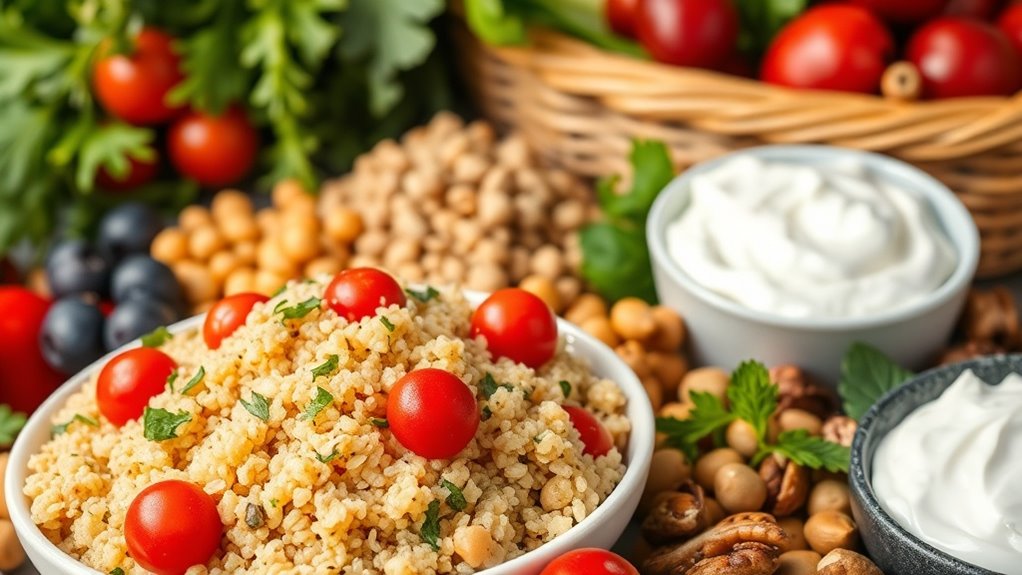Protein Power- The Best Sources Beyond Meat
Key Takeaways
- Legumes like beans, lentils, and chickpeas are excellent plant-based protein sources, providing essential amino acids and fiber.
- Dairy products such as Greek yogurt and cottage cheese deliver high-quality protein and vital nutrients like calcium.
- Nuts and seeds are nutritious snacks rich in protein, healthy fats, vitamins, and antioxidants that support heart health.
- Whole grains, including quinoa and brown rice, offer protein and fiber, promoting digestive health and a balanced diet.
- Alternative protein products like pea protein and mycoprotein reduce environmental impact while delivering substantial nutritional benefits.
Legumes: A Nutrient-Rich Protein Source
When you’re looking to diversify your protein intake, legumes are an excellent choice that shouldn’t be overlooked.
These nutrient-rich protein sources, including beans, lentils, and chickpeas, not only provide essential amino acids but also offer fiber, vitamins, and minerals.
Incorporating legumes into your meals can enhance health and support sustainable eating, making them a smart addition to any diet.
Dairy Products: Creamy and Protein-Packed
While many people think of meat as the primary source of protein, dairy products hold their own as creamy, protein-packed options that can easily fit into your diet.
Greek yogurt, cottage cheese, and low-fat milk are excellent choices, providing essential amino acids and supporting muscle health. Incorporating these dairy foods can enhance your daily protein intake while offering added calcium and vitamin D.
Nuts and Seeds: Crunchy Powerhouses
Nuts and seeds are crunchy powerhouses of nutrition, packed with protein and healthy fats.
They’re also rich in vitamins, minerals, and antioxidants, making them a perfect addition to your diet.
Almonds, walnuts, chia seeds, and flaxseeds offer various health benefits, including improved heart health and enhanced brain function.
Incorporating a handful into your meals or snacks can easily boost your nutrient intake.
Whole Grains: Fiber-Rich Protein Options
In addition to nuts and seeds, whole grains provide another excellent source of protein and fiber for a balanced diet.
They’re versatile and nutrient-dense, making them an ideal choice. Consider incorporating these options:
- Quinoa
- Barley
- Brown rice
- Farro
These grains not only boost your protein intake but also support digestion and overall health, enriching your meals effortlessly.
Alternative Protein Products: Innovation in Nutrition
As the demand for sustainable and health-conscious eating grows, alternative protein products have emerged as innovative solutions for those seeking to diversify their protein sources.
Options like pea protein, hemp, and mycoprotein not only offer substantial nutritional benefits but also reduce environmental impact.
They’re versatile, often mimicking traditional meat flavors and textures, making them an appealing choice for both food enthusiasts and health-conscious consumers alike.


